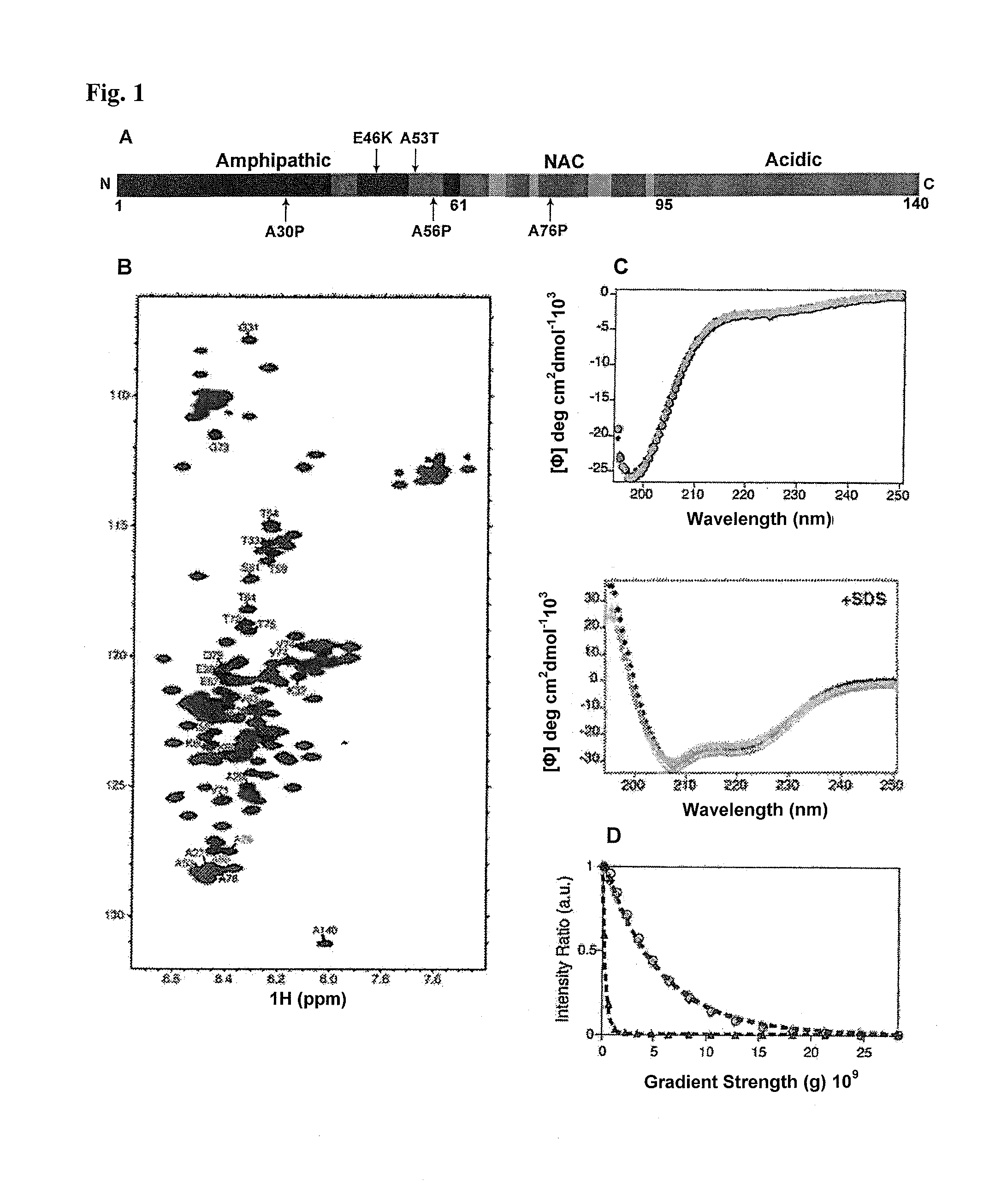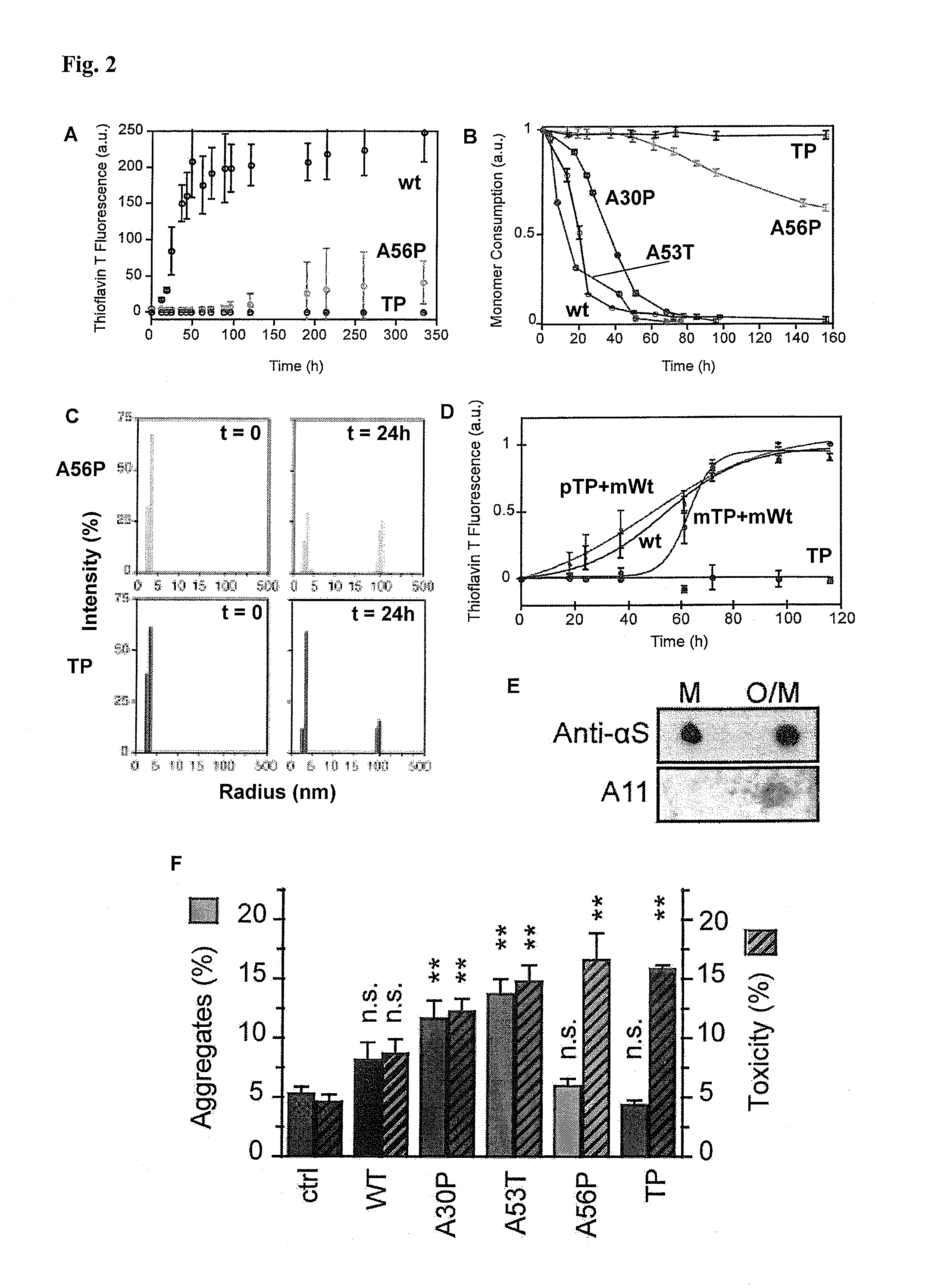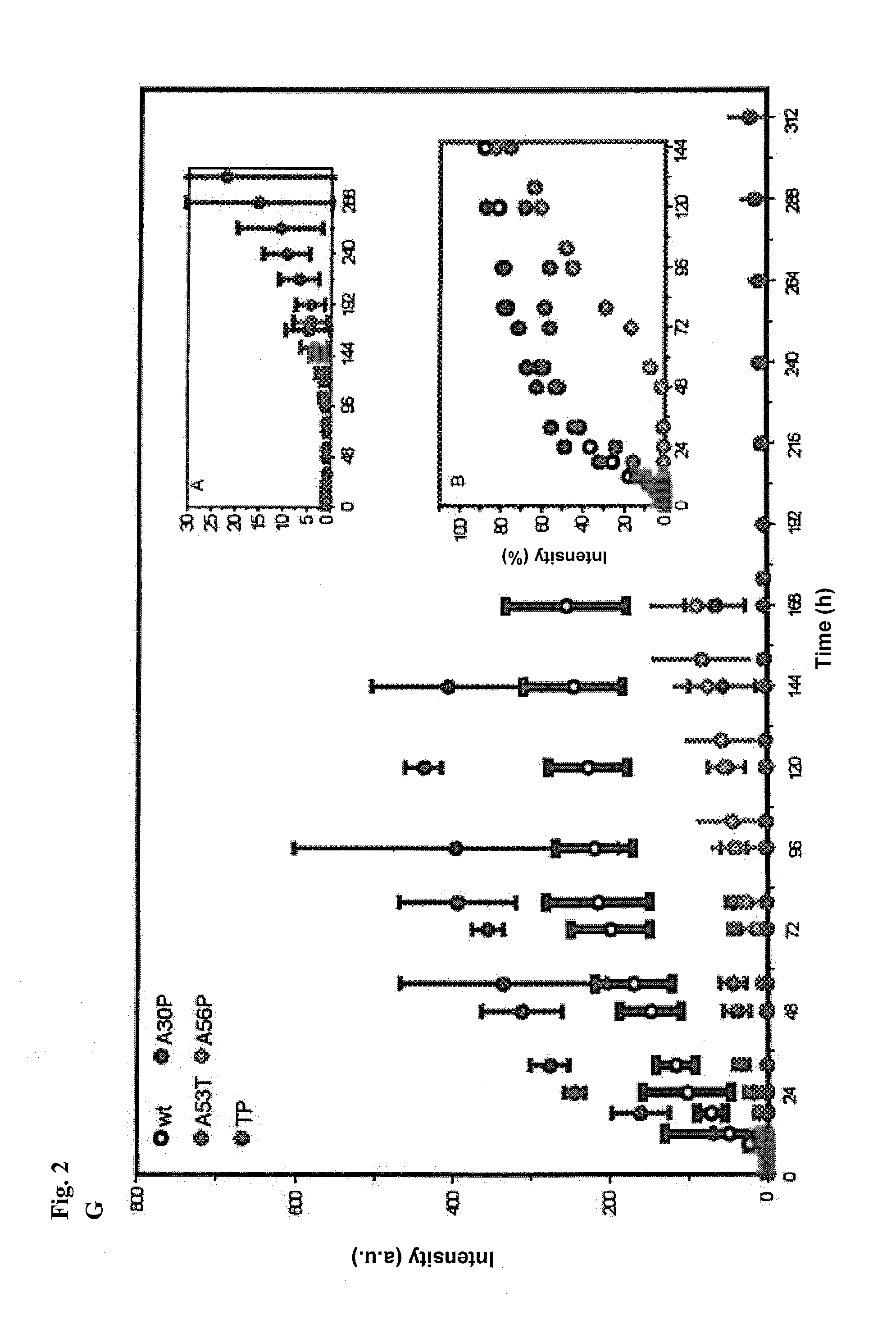Mutant alpha-synuclein, and methods using same
a technology of alpha-synuclein and alpha-synuclein, which is applied in the field of mutant alpha-synuclein to achieve the effect of reducing toxicity, increasing toxicity, and preventing or reducing toxicity of alpha-synuclein
- Summary
- Abstract
- Description
- Claims
- Application Information
AI Technical Summary
Benefits of technology
Problems solved by technology
Method used
Image
Examples
example 1
Design of Alpha-S Variants
[0141]A design of alpha-S variants that aims at the production of toxic species should keep the structural and functional properties of the respective multimers nearly constant. The design was based on the conformational properties of the alpha-S monomer in solution and the topology of alpha-S fibrils known from previous solid-state nuclear magnetic resonance (NMR) measurements (Lee et al., supra; Heise et al. Proc Natl Acad Sci USA 102, 15871-15876 (2005)). The genetic mutation A30P is located in a region of alpha-S that is statically disordered in amyloid fibrils (Heise et al., supra). To interfere with aggregation, the single proline mutation found in the genetic mutant were moved to a position that is part of the beta-sheet rich core of alpha-S fibrils (FIG. 1A). The alanine residues 56 and 76 were selected as they are characterized by relatively large residual dipolar coupling values in the soluble monomer, suggestive of a rigid nature (Lee et al., sup...
example 2
Preparation of Alpha-S Aggregates
[0152]Recombinant human wt and mutant alpha-S solutions were dialysed against 50 mM Na-phosphate buffer with 100 mM NaCl at pH 7.4 unless otherwise stated. To remove any potential seed prior to aggregation, ultracentrifugation was performed in a Beckman ultracentrifuge equipped with TLA.100 rotor (Beckman Coulter) at 60000 rpm for 2 h at 4° C. Supernatant was filtered through 0.22 μm filter. Protein concentration was adjusted to 100 μM unless otherwise stated. 0.01% sterile filtered NaN3 was included in the aggregation mixtures, which were then incubated in glass vials at 37° C. with constant stirring at 200 rpm on a multi-position magnetic stirring device (Variomag Telesystem 15.40, H+P Labortechnic AG, Germany). For every experiment, at least triplicates were prepared.
[0153]For seeded incubations, 200 μM solutions of TP alpha-S were incubated for five days at 37° C. prior to seeding. For electron microscopy, 50 mM HEPES 100...
example 3
Human Embriyonic Kidney (HEK) Cell Cultures
Cell Culture
[0170]HEK293 cells were cultured in Dulbecco's MEM (PAN-Biotech, Aidenbach, Germany) with 10% fetal calf serum and 1% penicillin-streptomycin. Cells were transiently transfected using Metafectene (Biontex Laboratories, Martinsried, Germany), following the manufacturer instructions. For imaging, cells were grown on poly-L-lysine (Sigma, Munich, Germany) coated glass coverslips and used 24 h after transfection. For staining of chromatin and F-actin, cells where submerged in PBS with 0.5 μg / ml of Hoechst 33258 (Invitrogen) and 1:500 of Alexa-568 conjugated phalloidin (Invitrogen) for 15 min at room temperature and washed 3 times in PBS. Coverslips were mounted on glass slides using mounting medium consisting of 24% w / v Glycerol, 0.1 M Tris-base pH 8.5, 9.6% w / v Mowiol 4.88 (Calbiochem, Darmstadt, Germany) and 2.5% w / v of DABCO (Sigma).
Imaging
[0171]Imaging at 24 h was performed at room temperature using an in...
PUM
| Property | Measurement | Unit |
|---|---|---|
| path length | aaaaa | aaaaa |
| temperature | aaaaa | aaaaa |
| initial time | aaaaa | aaaaa |
Abstract
Description
Claims
Application Information
 Login to View More
Login to View More - R&D
- Intellectual Property
- Life Sciences
- Materials
- Tech Scout
- Unparalleled Data Quality
- Higher Quality Content
- 60% Fewer Hallucinations
Browse by: Latest US Patents, China's latest patents, Technical Efficacy Thesaurus, Application Domain, Technology Topic, Popular Technical Reports.
© 2025 PatSnap. All rights reserved.Legal|Privacy policy|Modern Slavery Act Transparency Statement|Sitemap|About US| Contact US: help@patsnap.com



